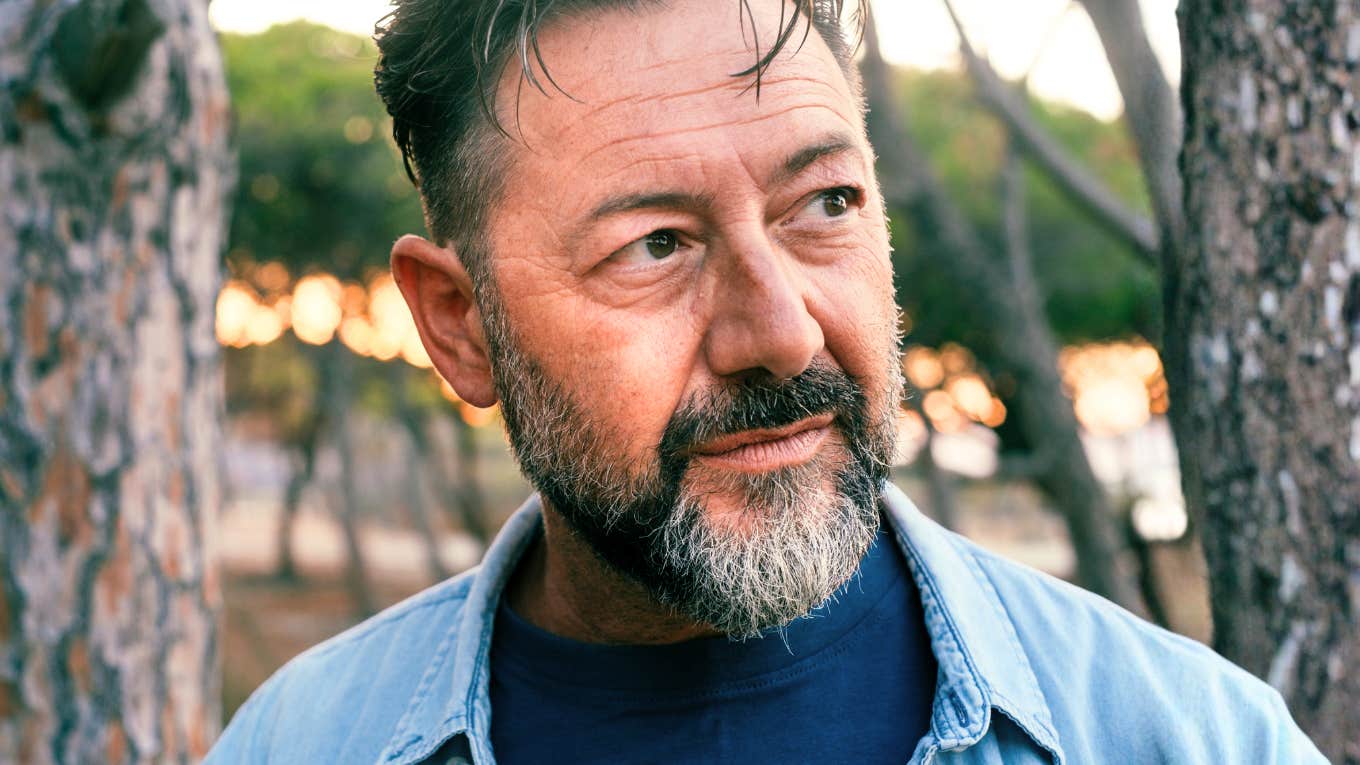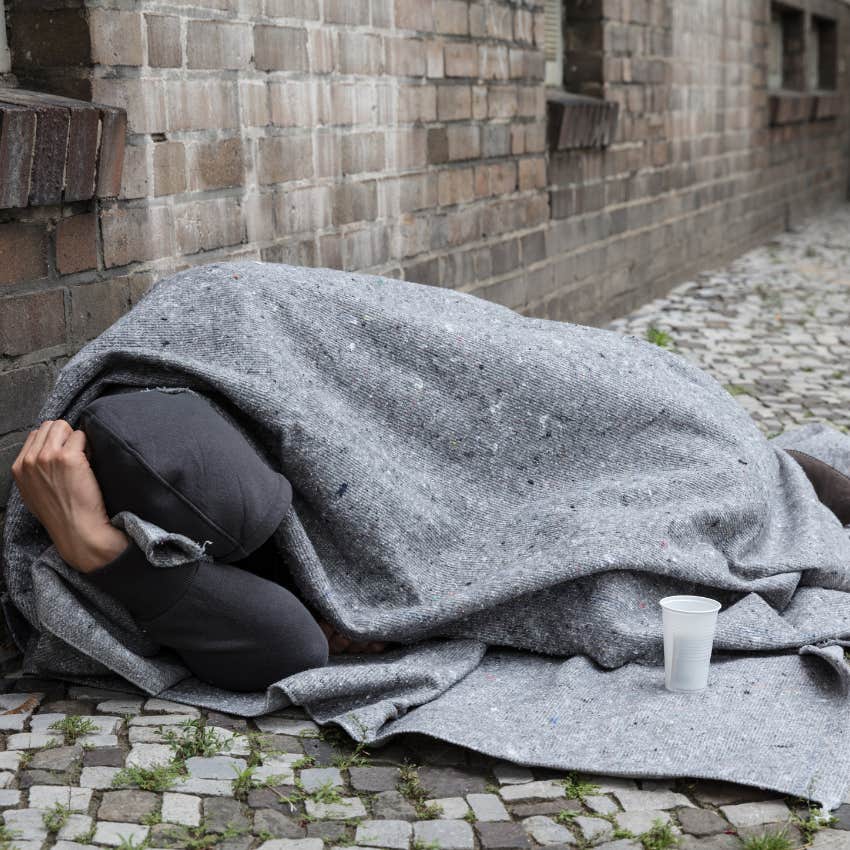Another Co-Worker Is Now Homeless — 'These Aren’t People Who Made Reckless Choices Or Shirked Responsibility'
It feels like we’re living in a world that’s forgotten how to care for its own.
 simonapilollatnf | Canva
simonapilollatnf | Canva This morning, I opened LinkedIn and saw a gut-punch of an update. A friend in another city, someone I’ve worked with in the past, posted that he’s officially homeless. Today was his last day in a weekly motel. Now, he’s on the street with four bags of belongings and a spirit that’s taken a beating.
My heart aches for him. But honestly, it’s not just him.
Too many of my friends, especially creatives in their 50s and 60s, are facing the same brutal reality of being homeless.
These are people who spent decades building the brands you know and love, crafting winning ad campaigns, and pouring their talents into companies big and small. They had homes, savings, and 401(k)s.
Now? Some are selling their houses, putting their things into storage, and squeezing into tiny efficiency apartments. A couple have moved into their cars.
Others, like my friend, are carrying their lives in a few bags, wondering where they’re going to go next, hoping there’s a soft spot somewhere to land. It feels almost dystopian, doesn’t it? It feels like we’re living in a world that’s forgotten how to care for its own.
 Andrey_Popov / Shutterstock
Andrey_Popov / Shutterstock
These aren’t people who made reckless choices or shirked responsibility.
They built solid careers, paid their taxes, and believed in the promise of hard work. Yet here they are, ending careers on a low note they never imagined.
My friend tried a GoFundMe after his unemployment and savings ran out. He got some help, but let’s be honest — homelessness doesn’t pull at the heartstrings the way a cancer diagnosis or a sick pet does.
And I get it. There’s a lot of giving fatigue out there. My own small budget for helping others is usually gone by the first week of the month. We’re all stretched thin, emotionally and financially. But it’s hard not to feel angry when you see the stark contrasts.
We live in the richest country in the world, and yet we’re failing so many.
While people like my friend are packing their lives into plastic trash bags, a 24-year-old tech whiz lands a $250 million compensation package at Meta. I don’t begrudge anyone their success, but that number feels like a slap in the face when I think of friends sleeping in their cars.
Companies lay off thousands, take a one-time financial hit, and boldly claim AI can replace human creativity and grit. Shareholders cheer, dividends roll in, and the rich get richer. Meanwhile, so many are left scrambling.
I know this struggle firsthand. After an extended period of unemployment, I took a job that pays $40,000 less than my old one. It’s humbling, and it’s exhausting. But I’m luckier than many — I have a roof over my head and I can offer my spare room to a friend in need. But I can’t help another friend 1,800 miles away as much as I’d like.
I’ve said before that I believe in capitalism. And I do. I’ve said before that at its best, it rewards innovation, hard work, and creativity. It’s the engine that’s driven progress, built industries, and given people a chance to carve out a living. But I also feel that corporate greed and selfishness have led capitalism astray.
So, where’s the hope in this? I don’t want this to be a story of despair. I believe there’s a way forward, even if it’s messy and imperfect.
First, we need to rethink how we care for each other.
The systems we’ve relied on — unemployment benefits, social safety nets — are stretched thin, severely broken, or even gone. We’re the wealthiest nation on Earth; surely we can do better than weekly motels and GoFundMes.
Community-based solutions, like mutual aid networks or local resource hubs, could bridge some gaps. I’ve seen friends band together to share what little they have — a couch, a meal, a lead on a gig. It’s not enough, but it’s a start.
Second, we need to talk about work.
Creatives, especially those in their 50s and 60s, bring a wealth of experience that AI can’t replicate. Companies need to value that wisdom, not discard it for short-term profits.
Some organizations are stepping up — nonprofits offering retraining programs, small businesses hiring seasoned talent for mentorship roles. It’s not widespread, but it’s proof that there’s still a place for human ingenuity.
And then there’s us — the people reading this, feeling the weight of it. We’re not powerless. We can check in on our friends, share a coffee, or listen to their stories.
Small acts of connection remind us all that we are not alone. My friend on the street? He’s still the same brilliant person I always knew. But he’s a little more bitter. A little more hurt. A little more alone.
His circumstances shouldn’t define him, and they shouldn’t define any of us, but he feels that the homelessness part is all people are going to see. And he’s probably not wrong. I don’t have any good answers.
I wish I could wave a wand and give my friend a home, a job, a fresh start. But what I can do — what we can all do — is keep showing up. Keep talking about this.
Keep pushing for a world where no one’s entire life fits into four bags.
It’s not hopeless because we’re still here, still fighting, still looking out, believing in each other. That’s got to count for something.
Susan League is a versatile writer and marketer with a passion for storytelling. As a newly single dog mom, she's navigating the challenges and rewards of independent living, exploring stand-up comedy in the metaverse, and sharing her experiences through her writing.

